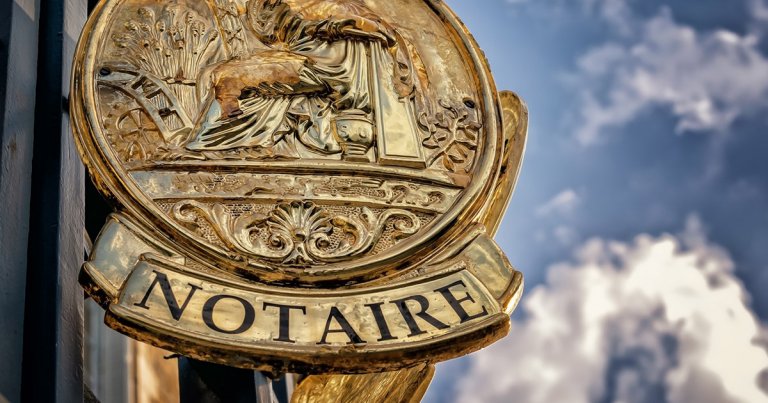 Goodbye notaries, hello blockchain
Goodbye notaries, hello blockchain 
Cover art/illustration via CryptoSlate. Image includes combined content which may include AI-generated content.
We live in a world of duality. Artificial intelligence is developing in leaps and bounds, connected devices are invading the home, and smartphones are in the pockets of most individuals on the planet—yet, something as archaic as the notary continues to serve as the main gatekeeper to document authorization today.
Notaries empower people to perform acts in legal affairs, in particular, witnessing and verifying signatures on documents. Clearly, it is an important service, but one that can be improved upon with the help of new technology.
Importance of the notary
The existence of a notary service is necessary. Most common law systems have what is called in the United States a notary public—a public official who notarizes legal documents and who can also administer and take oaths and affirmations. In civil law systems, the roles of a notary are even more extensive, often requiring the same level of education as attorneys.
In either system, the notary acts as a legally certified observer to confirm the accuracy of reports and check the legitimacy of marks to the document in question. Consider the sale of a house, for example. The notary’s function is to define the authenticity of the transactions happening between the seller and buyer. Notaries make sure that both parties are genuine and real. It is a vital function to ensure such sales legally occur.
A vital function indeed, but is it absolutely necessary for all of these tasks to be performed by an individual and in person?
Enter Blockchain
The arrival of blockchain into this and many other systems promises to bring much-needed efficiencies. Blockchain’s capability to timestamp documents when recording them in an immutable database resolves most issues identified with the bookkeeping procedure and consensus-building processes associated with current notary practices.
Blockchain also takes into account constructing a straightforward and simple auditable bookkeeping framework, where the possibility of backdating is extraordinarily low and tampering with records is virtually impossible. This implies that once your record (or some other significant data) is approved and embedded in the database, rest assured it won’t be amended, and additionally, that record is easily verified on the blockchain via a unique hash associated with only that record.
Process of Simplification
Once the recorded data is in the blockchain, there are several other features that can help simplify a notary service. One such feature is to implement smart contracts—an agreement in the form of computer code to perform an action once specific conditions are fulfilled. Smart contracts are automatically executed once the conditions of the agreement are met, meaning that in certain circumstances there is no need for a third party—such as a notary—to facilitate the signing of the agreement.
In this case, the smart contracts in place may act as a validation mechanism between the participating parties. Just as the notary is trusted to confirm that an identification document is valid and belongs to an individual, a smart contract can be programmed to execute only once identification has been confirmed via electronic means (i.e. Know Your Customer protocols, ERC 725 & ERC 735 on-chain identity initiatives, private and public key pairings, etc.).
Some other electronic ways of verifying the identity of people include using facial recognition software to analyze legal documents containing a photo ID in comparison to an uploaded photo to the database. This practice is still in its early stages, but even some smaller countries, like my birthplace, Slovakia, are already catching up to the idea of using digital media to verify identity when going through identity-dependant processes.
The notary service is, indeed, ready for an upgrade. Such an important legal process has remained relatively untouched by advancements in technology, but this is all about to change. With the introduction of blockchain technology, we now have a means of notarizing documents in a fully electronic fashion. Combine this with new-age identification processes and the days of physically going to a notary to get documents notarized could be numbered. Are you ready for the new era of digital notarization?







































































































